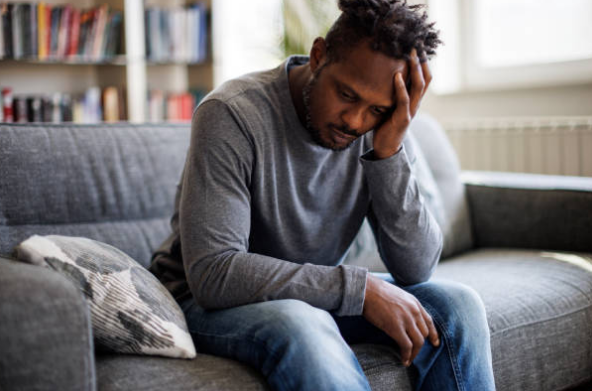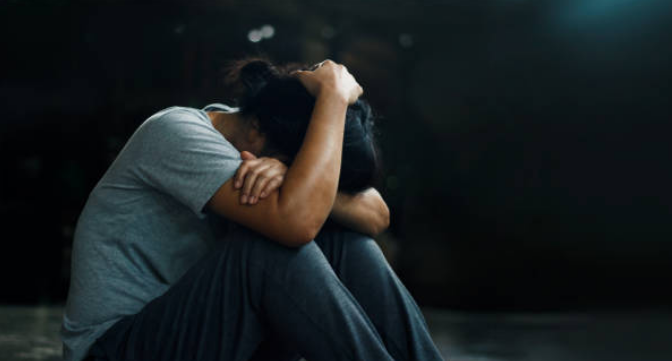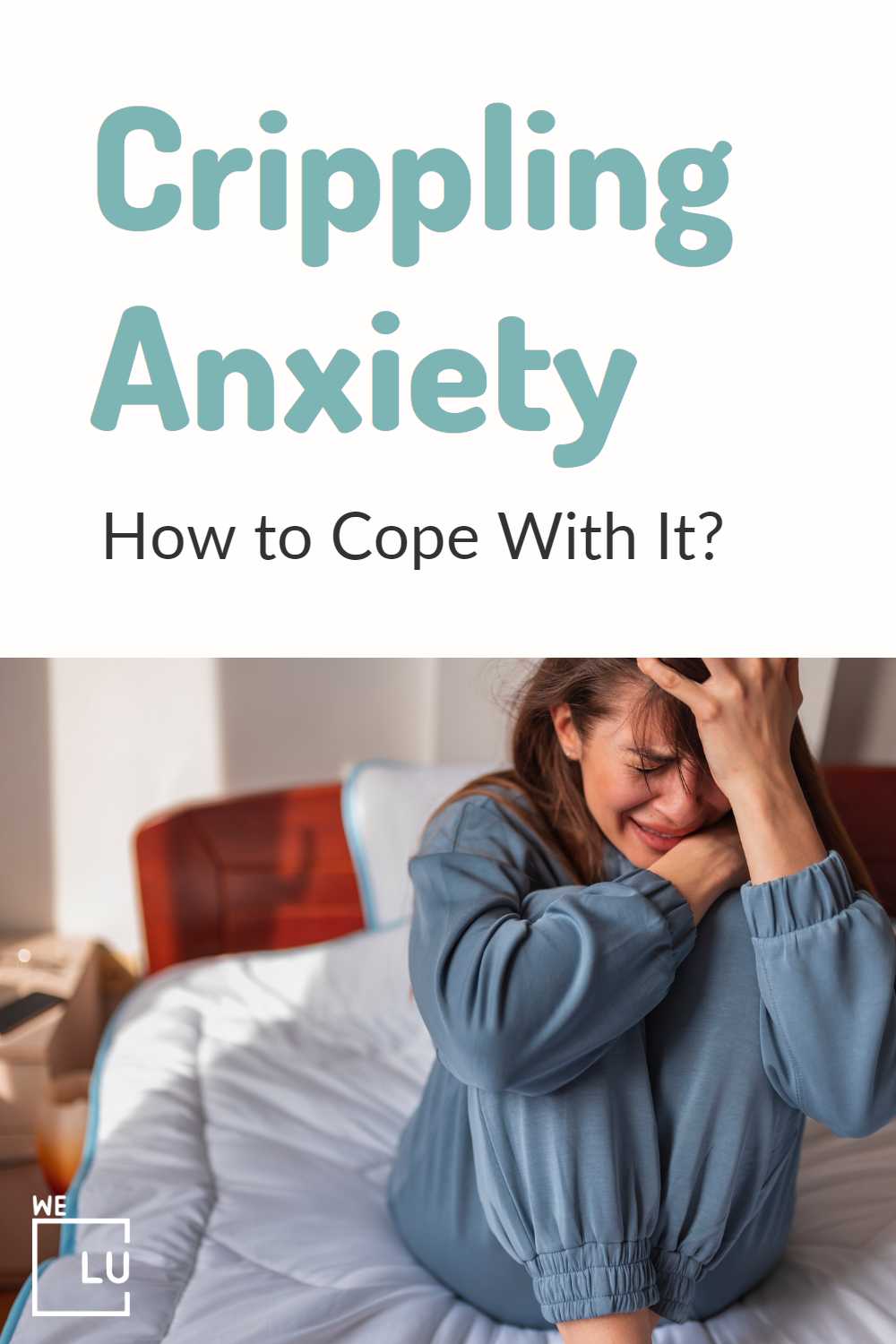What is Crippling Depression?
What is crippled depression? It refers to a severe form of depression that significantly impairs an individual’s daily functioning and quality of life. It is characterized by intense and persistent sadness, hopelessness, despair, and a loss of interest in previously enjoyed activities. People with crippling depression may experience profound fatigue, difficulty concentrating, changes in appetite or sleep patterns, feelings of worthlessness or guilt, and even thoughts of self-harm or suicide.
The term “crippling” emphasizes the profound impact that this level of depression can have on a person’s ability to carry out regular tasks and engage in relationships. It can interfere with work or school performance, personal relationships, self-care, and overall well-being.
Debilitating Depression
“Debilitating depression” refers to a form of depression that significantly impairs a person’s ability to function in their daily life. It is characterized by severe and persistent symptoms that can profoundly impact various aspects of a person’s functioning, including emotional, cognitive, and physical well-being.
People with debilitating depression may experience overwhelming sadness, loss of interest or pleasure in activities, feelings of worthlessness or guilt, fatigue or lack of energy, difficulty concentrating, changes in appetite or weight, sleep disturbances, and recurrent thoughts of death or suicide.
The term “debilitating” underscores the disabling nature of this type of depression, as it can hinder a person’s ability to perform basic tasks, maintain relationships, pursue hobbies or interests, attend work or school, and generally enjoy life. It often requires professional intervention and treatment to alleviate the symptoms and improve functioning.
I have crippling depression. What Should I Do?
Putting your mental health first and getting help from a professional is important. Talk to a mental health professional, like a therapist or counselor, who can look at your situation, give you an evaluation, and make a treatment plan that fits your needs. Also, you could get mental support from a close friend or family member you trust. Remember that you don’t have to deal with this alone; there are tools to help you improve.


Skip To:
Learn More:
- Smiling Depression, Symptoms, Treatment, and Test
- 5 Signs of Depression in Men, What Depression Looks Like
- Atypical Depression, Overview Symptoms, Treatments, and Diagnosis
- 7 Telltale Signs You Have High Functioning Depression
- What Are The Common Signs Of Depression In Women?
- Unipolar Depression, Definition, Symptoms, & Treatment
- What Does Depression Feel Like? Symptoms & Warning Signs
- What Is Situational Depression? Symptoms, Causes, and Treatment
Depression Fact Sheet
Definition: Depression is a common mental health disorder characterized by persistent sadness, loss of interest or pleasure in activities, and a range of physical and cognitive symptoms. It affects how a person thinks, feels, and functions daily.
Prevalence: Depression is a global health concern, affecting people of all ages and backgrounds.
Symptoms: Common symptoms of depression include persistent sadness, hopelessness, loss of interest in activities, changes in appetite and weight, sleep disturbances, low energy levels, difficulty concentrating, and thoughts of self-harm or suicide.
Risk Factors: Depression can be influenced by various factors, including genetics, brain chemistry, trauma, chronic medical conditions, certain medications, substance abuse, and significant life events such as loss or relationship problems. Women may be at a higher risk due to hormonal fluctuations, reproductive events, and societal pressures.
Impact: Depression can have a significant impact on an individual’s quality of life, affecting their relationships, work or school performance, physical health, and overall well-being. It can also increase the risk of other health problems, including cardiovascular diseases.
Treatment: Depression is a treatable condition. Treatment options may include psychotherapy (such as cognitive-behavioral therapy), medication (such as antidepressants), or a combination of both. Lifestyle modifications, social support, and self-care practices are essential to manage depression.
Breaking the Stigma: Depression is not a sign of weakness or a character flaw. It is a medical condition that requires understanding, compassion, and support. By promoting open conversations, raising awareness, and challenging stigmas associated with mental health, we can create a more supportive environment for individuals affected by depression.
End the Emotional Pain. Get Your Life Back.
Feeling Depressed, Anxious or Struggling with Mental Health Illness? Get Safe Comfortable Mental Health Dual Diagnosis High-Quality Therapy From Counselors That Care. Begin Your Recovery Now.
Hotline: (509) 348-4077

Crippling Anxiety and Depression Statistics
Depression is a common mental illness that affects millions of people all over the world. By looking at the most important depression statistics, we can learn much about how common, harmful, and important this disorder is. These numbers show that more people need to know about depression, that early help is important, and that people with depression need support systems.
21 million
An estimated 21.0 million adults in the United States had at least one major depressive episode. This number represented 8.4% of all U.S. adults.
Source: National Institute on Mental Health
10.5%
The prevalence of major depressive episodes was higher among adult females (10.5%) than males (6.2%).
Source: National Institute on Mental Health
17.0%
The prevalence of adults with a major depressive episode was highest among individuals aged 18-25 (17.0%).
Source: National Institute of Mental Health
Crippling Depression Symptoms
Crippling depression, or severe depression, can manifest with symptoms that significantly impact a person’s daily functioning and overall well-being. Some common symptoms of crippling depression may include:
- Persistent feelings of sadness, hopelessness, or emptiness.
- Loss of interest or pleasure in activities that were once enjoyable.
- A lack of motivation often accompanies fatigue or low energy levels.
- Difficulty concentrating, making decisions, or remembering things.
- Sleep disturbances, such as insomnia or excessive sleeping.
- Changes in appetite and weight leading to significant weight loss or gain.
- Physical symptoms such as headaches, body aches, or digestive problems.
- Irritability, restlessness, or agitation.
- Feelings of worthlessness or excessive guilt.
- Recurrent thoughts of death or suicide.
Get Help. Get Better. Get Your Life Back.
Searching for Accredited Dual Diagnosis Mental Health Centers Near You?
Even if therapy failed previously, or are in the middle of a difficult crisis, we stand ready to support you. Our trusted behavioral health specialists will not give up on you. When you feel ready or just want someone to speak to about counseling alternatives to change your life call us. Even if we cannot assist you, we will lead you to wherever you can get support. There is no obligation. Call our hotline today.
FREE 24/7 Dual Diagnosis Mental Health Services HotlineCrippling Anxiety and Depression
Crippling anxiety and depression can often be interconnected and co-occur in individuals. They can influence and exacerbate each other, creating a challenging cycle of symptoms and experiences.
Anxiety is characterized by persistent feelings of worry, fear, or unease, while depression involves intense feelings of sadness, hopelessness, and a loss of interest in activities. When these two conditions coexist and are severe, they can significantly impact a person’s well-being.
Anxiety can contribute to developing or worsening depressive symptoms by creating a constant state of distress and apprehension. It can also lead to social withdrawal, isolation, and difficulty engaging in daily activities, further contributing to feelings of sadness and hopelessness.
Likewise, depression can intensify anxiety symptoms by creating a negative thought pattern and reducing an individual’s ability to cope with stressors. The lack of motivation and energy associated with depression can also make it challenging to manage anxiety-provoking situations.
First-class Facilities & Amenities
World-class High-Quality Mental Health Services & Behaviroal Health Substance Abuse Treatment
Rehab Centers TourRenowned Mental Health Centers. Serene Private Facilities. Inpatient Rehab Programs Vary.
Mental Health Helpline: (509) 348-4077Proven recovery success experience, backed by a Team w/ History of:
15+
Years of Unified Experience
100s
5-Star Reviews Across Our Centers
10K
Recovery Success Stories Across Our Network
- Low Patient to Therapist Ratio
- Comprehensive Dual-Diagnosis Treatment
- Complimentary Family & Alumni Programs
- Coaching, Recovery & Development Events
- Comfortable Onsite Medical Detox Center
Crippling Depression Treatment
Crippling depression, or debilitating depression, often requires comprehensive treatment to alleviate symptoms and improve overall well-being. The following are common treatment options that can be effective:
- Psychotherapy: Talk therapy, such as cognitive-behavioral therapy (CBT) or interpersonal therapy (IPT), can help individuals understand and manage their thoughts, emotions, and behaviors associated with depression. Therapists provide support, teach coping skills, and help individuals develop healthier perspectives and strategies to navigate their challenges.
- Medication: Antidepressant medications may be prescribed by a psychiatrist or other healthcare professional to help regulate brain chemistry and alleviate depressive symptoms. Different types of antidepressants, such as selective serotonin reuptake inhibitors (SSRIs) or serotonin-norepinephrine reuptake inhibitors (SNRIs), may be considered based on individual needs and responses.
- Lifestyle changes: Healthy habits can support well-being and complement other treatment approaches. This includes regular exercise, a balanced diet, sufficient sleep, and avoiding alcohol or substance abuse.
- Social support: Building a strong support system of trusted friends, family, or support groups can provide emotional support, understanding, and a sense of connection. Openly discussing feelings with loved ones or joining support groups can help individuals feel less isolated.
- Stress management: Learning and practicing stress management techniques, such as relaxation exercises, mindfulness meditation, or deep breathing exercises, can help reduce stress levels and improve coping mechanisms.
- Hospitalization or intensive treatment: In severe cases where immediate safety concerns, hospitalization or intensive treatment programs may be necessary. These programs offer a higher level of care, including 24/7 monitoring, structured therapy, and medication management.
World-class, Accredited, 5-Star Reviewed, Effective Mental Health Dual Diagnosis Programs. Complete Integrated Inpatient Rehab with Free Post Discharge Therapy Planning.
Hotline: (509) 348-4077End the Emotional Pain Rollercoaster. Gain Stability & Happiness Through Recovery Treatment. Start Mental Health Counseling Today. Get Free No-obligation Guidance by Behaviroal Health Specialists Who Understand Mental Health Recovery.
Treatment at We Level Up Washington Behavioral Health Center
Consulting with a healthcare provider is crucial in determining the most appropriate medication and dosage for your anxiety disorder. They can evaluate your situation and guide you in making an informed decision.
Contact We Level Up Washington mental health treatment center for more information. Our mental health specialists can help you explore treatment options and provide further resources.
Popular FAQs about Debilitating Depression/Crippling Depression
-
What is crippling depression?
Crippling depression is a severe form of depression that greatly impairs daily functioning and overall well-being.
-
What is crippled depression?
The term crippled depression emphasizes the profound impact that this level of depression can have on a person’s ability to carry out regular tasks and engage in relationships.
-
What is debilitating depression?
Debilitating depression refers to a severe form of depression that significantly hinders a person’s ability to function in daily life.
Tips for Maintaining Your Mental Well-being Informative Video
Video Script
8 Steps for Mental Wellbeing & How To Improve Mental Health In The Workplace
- Staying Positive
- Practicing Gratitude
- Taking Care of Your Physical Health
- Connecting With Others
- Developing a Sense of Meaning and Purpose in Life
- Developing Coping Skills
- Meditation
- Relaxation Techniques
Experience Transformative Recovery at the We Level Up Treatment Center.
See our authentic success stories. Get inspired.
Get the help you deserve.



Start a New Life
Begin with a free call to a behavioral health treatment advisor. Learn more about our dual-diagnosis programs. The We Level Up treatment center network delivers recovery programs that vary by each treatment facility. Call to learn more.
- Personalized Care
- Caring Accountable Staff
- World-class Amenities
- Licensed & Accredited
- Renowned w/ 5-Star Reviews
We’ll Call You
Search We Level Up WA Mental Health Crippling Depression, Definition, Symptoms, and Treatment Topics & Resources
Sources
- American Psychiatric Association. (2013). Diagnostic and statistical manual of mental disorders (5th ed.). Arlington, VA: American Psychiatric Publishing. Learn More: What does depression feel like?
- Depression. (2018).
nimh.nih.gov/health/topics/depression/ Learn More: What does depression feel like? / Depression Symptoms - Depression medicines. (2019).
fda.gov/consumers/free-publications-women/depression-medicines Learn More: What does depression feel like? - O’Donnell ML, et al. (2019). Adjustment disorder: Current developments and future directions.
mdpi.com/1660-4601/16/14/2537 What does depression feel like? / Depression Symptoms - What is PTSD? (2020).
psychiatry.org/patients-families/ptsd/what-is-ptsd - Depression. (2017).
nami.org/About-Mental-Illness/Mental-Health-Conditions/Depression What does depression feel like? / Depression Symptoms - IsHak WW, et al. (2018). Pain and depression: A systematic review.
pubmed.ncbi.nlm.nih.gov/30407234/ - Israel L. (2022). Personal interview.
- Ostergaard L, et al. (2018). Low on energy? An energy supply-demand perspective on stress and depression.
sciencedirect.com/science/article/abs/pii/S0149763418300812 - Steiger A, et al. (2019). Depression and sleep.
mdpi.com/1422-0067/20/3/607/htm?from=article_link - Vidal-Ribas P, et al. (2021). How and why are irritability and depression linked?
pubmed.ncbi.nlm.nih.gov/33743947/
